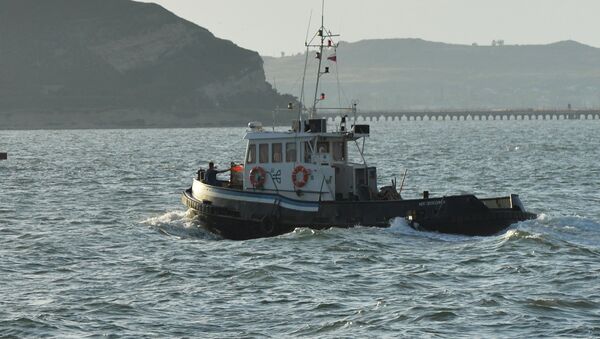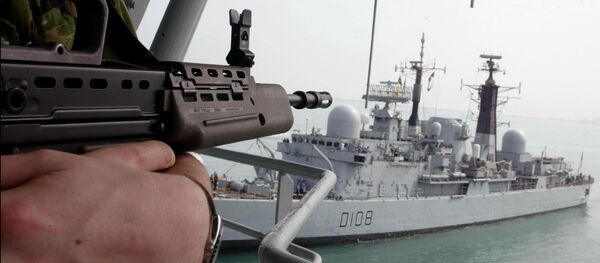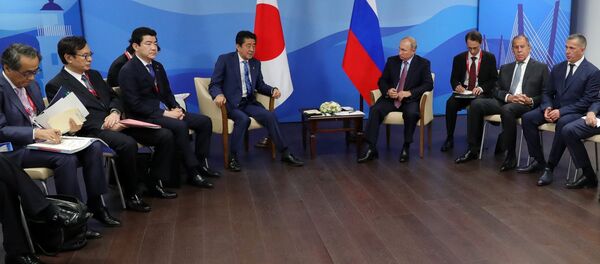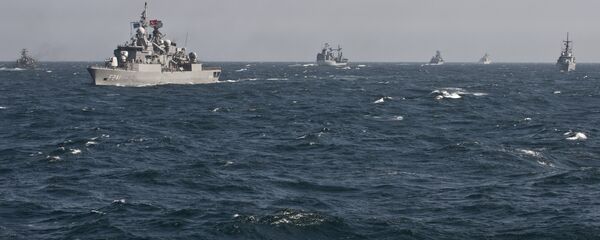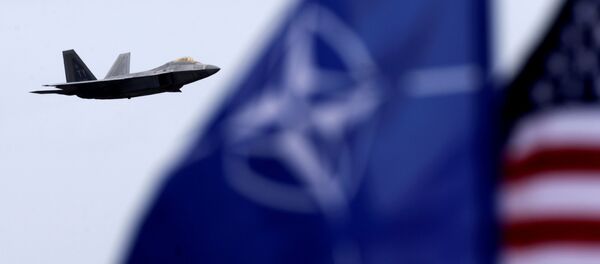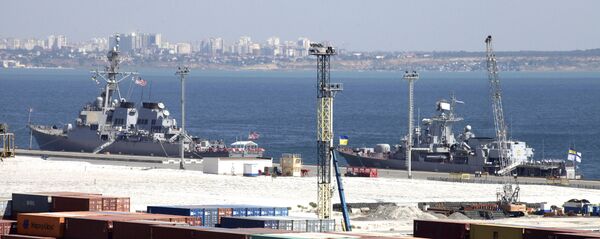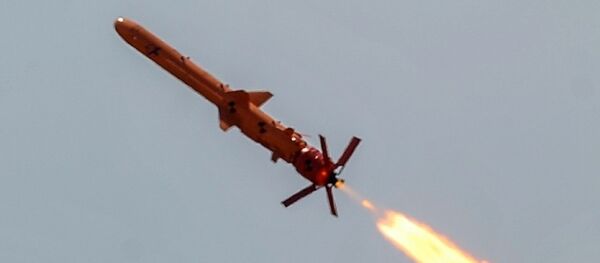The statement said that so far, more than 200 vessels had been affected and that the policy is damaging Ukraine's economy and undermining its sovereignty.
Radio Sputnik discussed this with Dr Erik Franckx, research professor and director of Section International and European Law at Vrije Universiteit Brussel, Belgium.
Sputnik: How legal are these calls from the UK to Russia? Could you, perhaps, give us a little bit of a background of the legal status of the Azov Sea?
The problem arises, I think, when the Soviet Union ceased to exist in 1991 and the bay no longer was surrounded by one single state, because at that time the provision of international law, the convention that applied, no longer applied, because it only applies to bays that are surrounded by one single state.
READ MORE: UK Foreign Office Calls on Russia to Grant Intl Ships Access to Azov Sea
The possibility then exists, of course, that both states want to continue that kinds of relationship; and in international law we have seen certain kinds of examples, even cases before the International Court of Justice, where tribunals and courts have accepted that, indeed, if states are in agreement, they can continue that status. I think that is, indeed, what the 2003 agreement provides for.
Sputnik: The 2003 agreement between Russia and Ukraine actually saw both countries treating Azov as historical internal waters for both Kiev and Moscow. Why is that agreement being ignored by European states at this time?
It stated that as far as commercial vessels of third parties are concerned, they have a right to sail to a port inside the Sea of Azov and have this same kind of freedom of navigation; and as far as war vessels are concerned, the agreement is a little bit more specific and more restrictive in the sense that it will require, first of all, the acceptance or authorisation of one of the two states, and also the other state, meaning either Russia or Ukraine, has to agree that foreign war vessels enter into the area. But as far as commercial vessels are concerned, they have a right to be in that area.
Sputnik: According to an FCO spokesperson, "Russia and its security forces continue to disrupt Ukrainian international shipping calling at Ukrainian ports in the Sea of Azov. In March Russia opened an unlawfully constructed bridge across the Kerch Strait connecting Russia to the illegally annexed Crimean Peninsula." What are your thoughts about how the whole conflict between Moscow and Kiev has affected the status of the Sea of Azov?
Erik Franckx: The construction of the bridge, of course, creates a problem from an international legal perspective in the sense that if waters are to be accessed by ships and you grant the ships freedom of navigation, then, of course, it would be counterproductive by means of artificial constructions to make such constructions that the ships no have longer the possibility to enter.
READ MORE: WATCH Su-25 Jet Skim Unnervingly Close to Shore at Ukrainian Beach
Here we see that a bridge of 65 meters apparently gave rise to an international claim. Of course, two cases are never exactly the same; here it was international navigation which was at stake, and in the case of Kerch Strait, it's a bilateral treaty which creates these rights to the parties. Nevertheless, the number of ships is much broader and these are normal vessels that are now hindered from coming and reaching ports inside the Azov Sea. If my information is correct, about 25% of certain ships going through the ports of Ukraine no longer have this possibility to reach these ports because of the construction of the bridge.
Sputnik: There's also the issue of Russia conducting stop-and-search operations for the cargo ships arriving and leaving Ukraine's ports. What is necessary to really regulate this? Is there some kind of a mechanism available to, perhaps, regulate this? That must be quite difficult, actually, because of the status and the conflict between Ukraine and Russia right now.
READ MORE: Crew of Russia's Nord Fishing Vessel Forbidden to Leave Ukraine — Lawyer
The agreement of 2003 doesn't specify how this should be done; we simply say this in accordance with existing agreements or agreements that still are to be concluded. But, as far as I'm informed, I don't know whether such agreements that specify how joint operations should be conducted really exist.
Sputnik: Is it likely that there will be some changes that will be proposed to the accord? What would be the mechanism for that being regulated?
Sputnik: So, there is an international tribunal; is there an active case right now?
Erik Franckx: That's exactly what I'm trying to say. A case has been brought before the tribunal according to the United Nations Convention on the Law of the Sea. That was done recently; and the case has just decided that they would first treat the issues of jurisdiction; this was decided in August of this year. So, now it will first be decided whether the case can be decided by this arbitral tribunal, or whether Ukraine has no reason to bring the case before the court.
Sputnik: So, this was brought to the international tribunal by Ukraine.
Sputnik: Based on international precedents, you mentioned the case a little bit earlier about a bridge being constructed, what do you think the outcome of this kind of tribunal would be? What is the likely decision?
As you know, the whole problem of Crimea is, of course, very much involved and the Law of the Sea Convention, on the basis of which this tribunal has been established, has no competence to deal with these issues; it can only deal with law of the sea issues.
Sputnik: If it's decided that this tribunal is, in fact, not competent, are there any additional steps that Ukraine can take? What remains to resolve the ongoing conflict?
Erik Franckx: If you look at the treaty itself, it says that only peaceful means can be used to settle any dispute that might arise in the application of the treaty. So, the parties should then, if there's no legal solution to the issue, they should themselves try to find a practical arrangement to stop the escalating tensions within the Sea of Azov.
Sputnik: With the relationship having significantly soured in the last decade, what are the chances that there will be some kind of a resolution? There's also an increased Russian military presence; are there other military presences? What military presence do we currently have in the Sea of Azov?
Erik Franckx: As I've said, the fact is that military vessels don't have the right to enter into the Sea of Azov, at least third states' military vessels, unless they have an agreement with one of the two parties and the other party doesn't disagree with it. It means that, probably, there will be no military presence inside the sea; but, of course, the fact is that on the outside of the Sea of Azov, in the Black Sea, foreign military presence is possible.
READ MORE: Ukraine Court Authorizes Arrest of Captain of Detained Russian Fishing Vessel
I do recall that in the 1980s, the US, in their freedom of navigation program, very much made use of that right by sailing through the territorial sea of the Soviet Union, to the south of the Crimea, to test the Soviet attitude towards the innocent passage of warships through their territorial waters.
The views expressed in this article are solely those of Dr Erik Franckx and do not necessarily reflect the official position of Sputnik.
